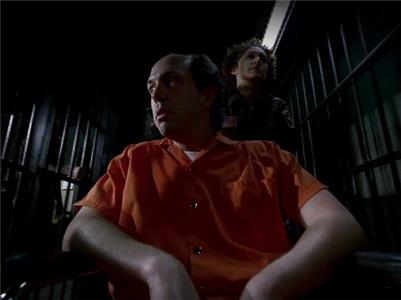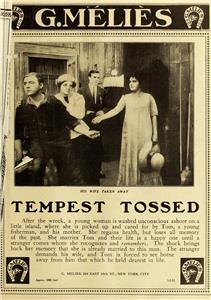Shakespeare's epic play is translated from page to screen, with the gender of the main character, Prospero, changed from male to female.
The Tempest (2010) Online

In Julie Taymor's version of 'The Tempest,' the main character is now a woman named Prospera. Going back to the 16th or 17th century, women practicing the magical arts of alchemy were often convicted of witchcraft. In Taymor's version, Prospera is usurped by her brother and sent off with her four-year daughter on a ship. She ends up on an island; it's a tabula rasa: no society, so the mother figure becomes a father figure to Miranda. This leads to the power struggle and balance between Caliban and Prospera; a struggle not about brawn, but about intellect.
| Complete credited cast: | |||
| Felicity Jones | - | Miranda | |
| Jude Akuwudike | - | Boatswain | |
| Reeve Carney | - | Prince Ferdinand | |
| David Strathairn | - | King Alonso | |
| Tom Conti | - | Gonzalo | |
| Alan Cumming | - | Sebastian | |
| Chris Cooper | - | Antonio | |
| Helen Mirren | - | Prospera | |
| Ben Whishaw | - | Ariel | |
| Djimon Hounsou | - | Caliban | |
| Russell Brand | - | Trinculo | |
| Alfred Molina | - | Stephano | |
| David Scott Klein | - | Prospera's Husband | |
| Bryan Webster | - | Guard |
The decision to switch the gender of the lead character was a diving board to a whole new appreciation of the play. It had everything to do with Helen Mirren and a coincidental exchange that Julie Taymor had with the actress. When Taymor encountered Helen Mirren at a party, she had already envisioned Mirren in the role and their conversation cemented her decision. "We were talking Shakespeare," Taymor recollects, "and she had no idea I was planning this film when she mentioned that the first Shakespeare she ever did was Caliban in 'The Tempest,' and she actually said to me, 'You know, I could play Prospero-as a woman.' And I said, 'Do you want to? Because I've been preparing a film version of "The Tempest" with exactly that in mind.' And, fortunately, she said yes."
"O mistress mine" is originally a song from "Twelfth Night" (also by Shakespeare), not "The Tempest".
John Gielgud previously played the role of Prospero in Peter Greenaway's film Prospero's Books (1991). That makes this film actually the first of two in which Helen Mirren has succeeded Gielgud. They very next year, she appeared in Gielgud's role in the remake Arthur (2011), which coincidentally also starred Russell Brand.
The line in the song "Come unto these yellow sands" is changed in the film to "Come unto these darkened sands".
Alan Cumming's second collaboration with Julie Taymor since Titus (1999).
Alfred Molina's second work in a Shakespearean film since As You Like It (2006).
The film cast includes two Oscar winners: Helen Mirren and Chris Cooper; and four Oscar nominees: Felicity Jones, Djimon Hounsou, David Strathairn and Tom Conti.








User reviews